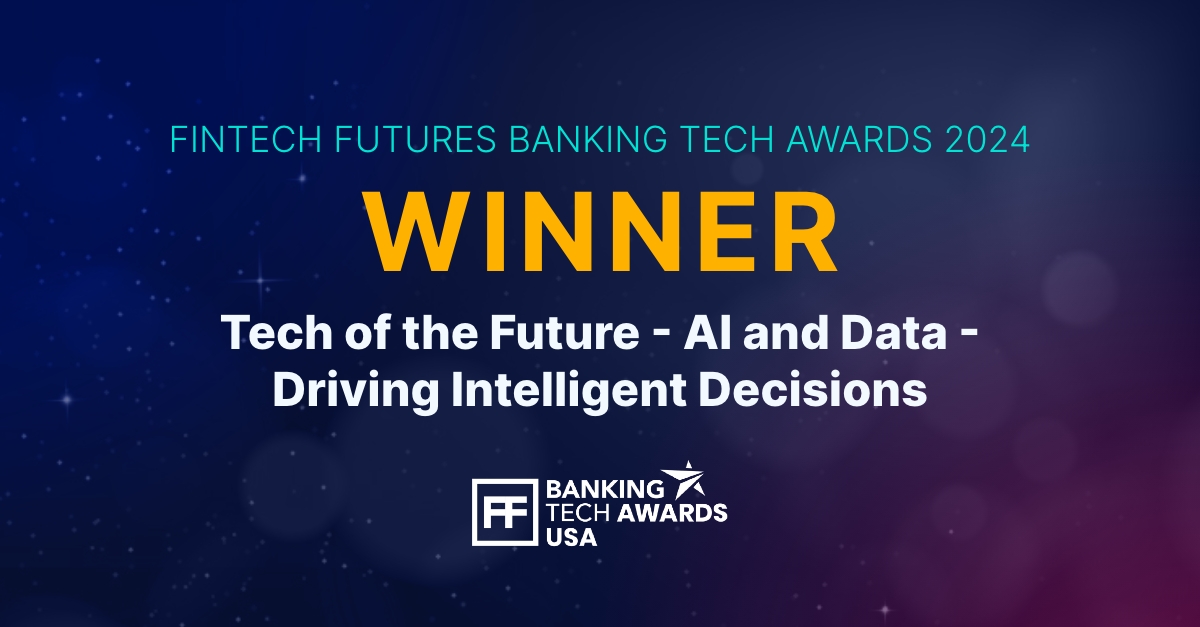We’ve all heard the term Big Data, and the world of financial services is no exception. Big data refers to large, structured and unstructured sets of information growing at ever increasing rates. Data drives key decisions made by fintechs and financial services organizations – everything from helping determine identity and approving a car loan or a mortgage to optimizing pricing and deciding when to upsell a current customer. The surge in volume, variety and velocity of data has led financial institutions to use advanced machine learning algorithms to make smarter, faster decisions. But using AI is not without challenges. There can be several obstacles to successful deployment, including choosing the right algorithms, interpreting and explaining complex models, deploying the models, ensuring the infrastructure is sufficient, and managing bias.
AI Challenges
- Choosing the right algorithm: not all algorithms perform equally well on the same dataset. Depending on the nature of the data, organizations must be able to choose and configure the best algorithm to fit their data.
- Model complexity, interpretability and explainability: the intricacy of AI algorithms can make them “black boxes” in the sense that often even the developers don’t know why and how the algorithms make the decisions they do.
- Model deployment: deploying a model into production requires coordination between data scientists, software developers and business users, posing a challenge with regards to the different programming languages and approaches that need to be unified into one solution.
- Infrastructure requirements: many organizations lack the infrastructure required for data modeling and reusability. Being able to quickly develop and test different tools, across different, large datasets, is essential to producing more accurate, manageable results.
- Exclusion bias: many consumers globally remain ‘credit invisible’ or thin-filed, meaning that little-to-no credit scores are available for them.
Overcoming the AI hurdles
What’s the best way to tackle these challenges? Financial services organizations should transition from traditional Generalized Linear Models (GLM) to explainable AI algorithms to improve the speed and accuracy of their decisions. According to a recent survey conducted by Pulse and Provenir, 69% of companies plan to invest in AI-enabled credit decisioning in 2022. AI algorithms can also help to more easily identify fraud and creates opportunities for improvement of the customer experience across the entire lifecycle.
Benefits of AI
- Algorithm Optimization: choose the most appropriate algorithms from a wide variety of options, including Gradient Boosting Decision Trees, Random Forests and Deep Neural Networks, depending on the nature of the dataset.
- Interpretability and Explainability: through a careful adoption of SHAP and LIME explanation methods it is possible to explain how and why your model has made a prediction.
- Ease of Deployment: use of a unified platform enables seamless deployment, allowing businesses to take fast, effective action.
- Scalability: reduce the development time from months to days by automatically training, testing, monitoring and managing your model.
- Diverse Data: by leveraging traditional and alternative data, improve your model accuracy, while managing bias and promoting financial inclusion.
Moving to AI algorithms has numerous benefits – including higher accuracy, improved compliance and superior scalability – all of which have tremendous impact on your overall business stability and growth. Using AI algorithms means more predictive, more accurate models, resulting in increased profits, reduced losses and more up-to-date risk assessments. After conducting internal research, Provenir has observed that AI algorithms can improve a model’s accuracy by up to 7%, while automated model development and deployment can reduce time and effort by up to 90%. This automation ensures faster speed-to-market with more accurate models and the ability to quickly respond to consumer needs and market trends, for true scalability. And the effects of this go beyond an individual business when you consider the further-reaching implications on the economy as a whole – The Wall Street Journal forecasted a 14% increase in the global GDP by 2030 thanks to the advancements of AI.
More legislation is now in play that requires full explainability of models. Fully interpretable and explainable models meet these requirements by clearly demonstrating how and why models make the decisions they do. In addition to compliance, model governance can be incredibly difficult with traditionally siloed environments. Separate environments for data collection, model development, deployment and monitoring require an immense amount of time and resources to integrate. With a cohesive, all-in-one environment you eliminate that integration time and effort, enabling live, real-time results and helping reduce human error from manual processes.
The Value of a Unified Platform
Further to the siloed environments of data collection, model development, deployment and monitoring, models are also often built separately from decision engines and unnecessarily moving data between them increases time, effort and the probability of errors. With a unified platform that incorporates data, AI and decisioning, models are built and implemented in the same platform, ensuring seamless data and model integration, eliminating recoding delays and ensuring maximum performance of your models. In Provenir’s experience, models implemented in a unified platform can save up to 30% of a modeling project’s overall time and effort.
But what makes AI so powerful and capable? It’s all about the data. The more data your AI models have, the better your advanced algorithms will perform. A data-agnostic platform that can integrate and enrich your existing data sets with any other type of data set (i.e. various forms of alternative data) is critical. This seamless integration to a wide variety of data sources helps to encourage financial inclusion, manage bias and improves the predictive power of your models. And it’s not a one-and-done deal – true value comes from the continuous improvement that happens when you bring data, AI and decisioning together. Model monitoring and a constant feedback loop helps you fine-tune your decisions for continual optimization.
Being able to increase your predictive power and make more accurate decisions has impacts across the entire customer lifecycle. Real-time dashboards and reports help you stay up-to-date on changes with your customers, your portfolio and all of your models – allowing you to automatically generate updated predictive models, with everything available for live monitoring. This helps to enable better relationships with your customers, increases your agility in responding to market needs, and better predicts (and prevents!) fraud and loss.
According to The Economist, 86% of financial services executives are planning to increase their investment in AI – but most AI projects never make it out of the concept/planning stage. Despite how daunting moving from linear models to advanced AI models can seem, it is possible to implement AI and see results in under 60 days.














